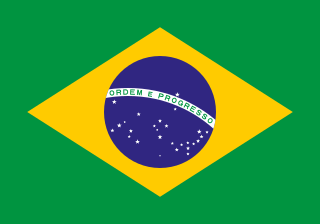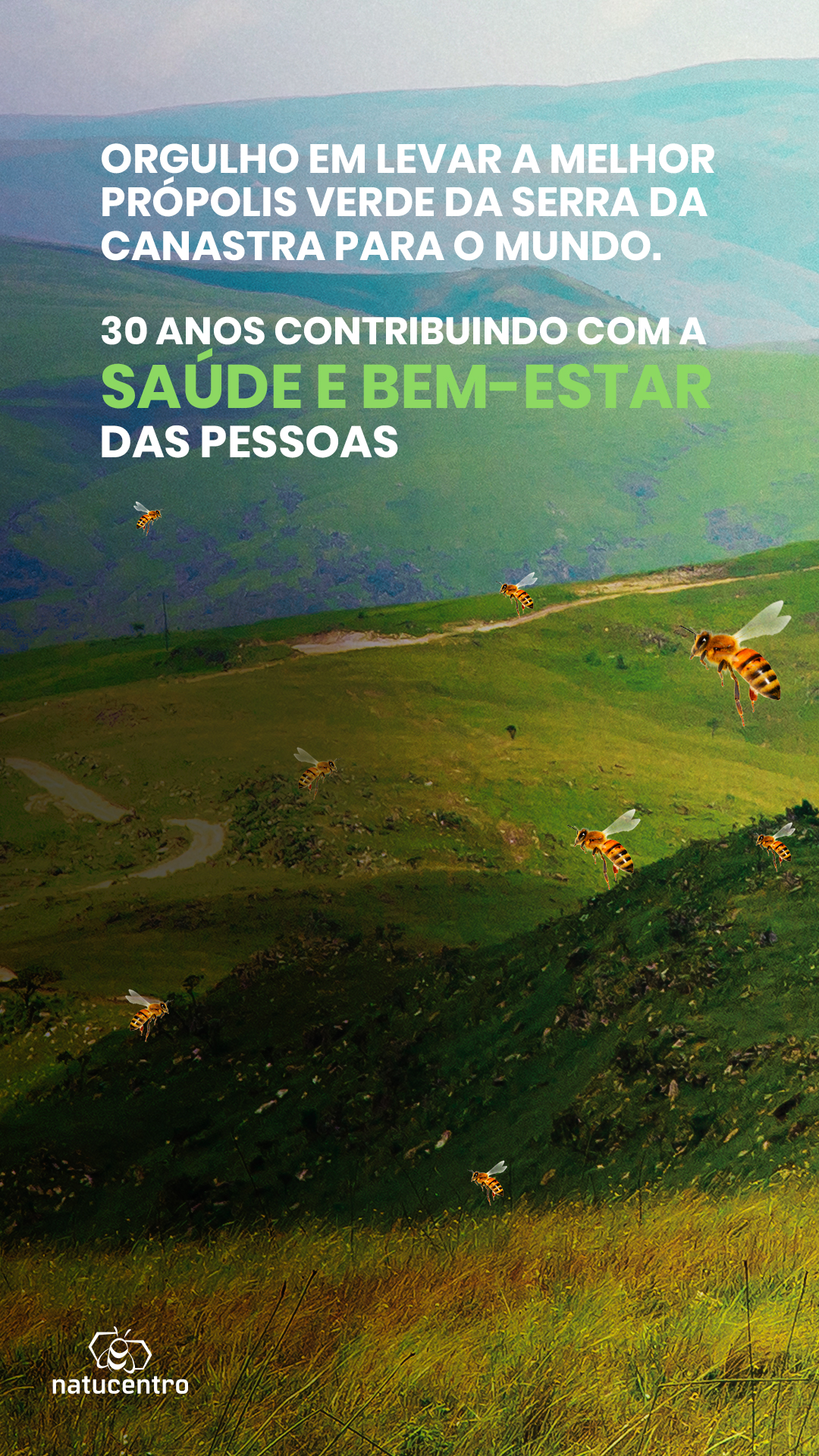

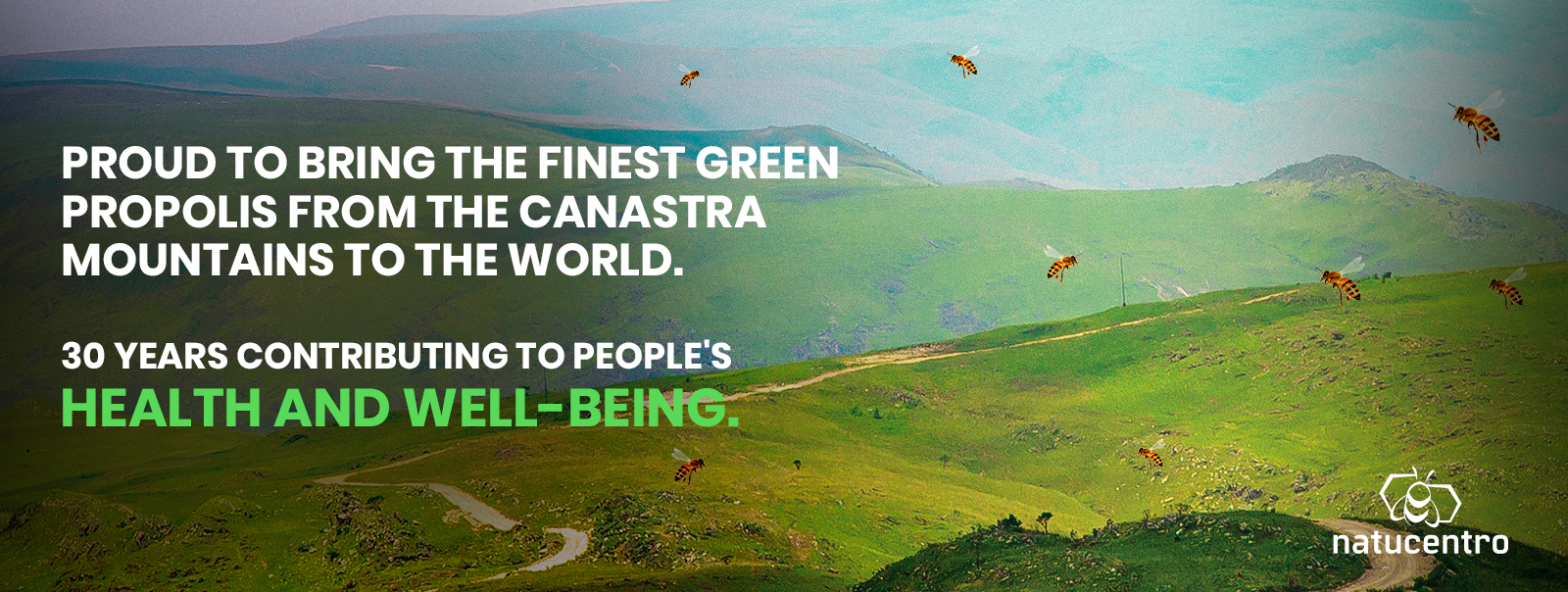

Founded in 1995 by brothers Cézar Ramos Júnior and Fernando Ramos, Natucentro is a Brazilian company, a pioneer in its segment and specialized in the processing and marketing of beekeeping products.
Located in the city of Bambuí, Minas Gerais, specifically in the Serra da Canastra region, where the Cerrado biome predominates and the source of the São Francisco River, the region is world-renowned for its privileged terroir, where the authentic and rare Green Propolis is produced.
30 years of work dedicated to quality and excellence in the field, guaranteeing its originality and credibility.

The care taken in producing products signed by the Natucentro brand begins with the management of its five thousand hives, through the strict process of collection, transportation and inspection techniques, to processing in the industry’s modern industrial park, now called Bee Propolis Brasil.
The technology adopted prevents products from undergoing and/or pasteurization processes, providing greater quality and safety to the consumer.
Our industry is certified by national and international organizations, such as ISO 9001, IFS Progress Food, Family Farming, and organic certifications. The company is also inspected by the Ministry of Agriculture, Livestock, and Supply (MAPA), ensuring the quality of our products through the SIF seal and ensuring compliance with the Hazard Analysis and Critical Control Points (HACCP) program.
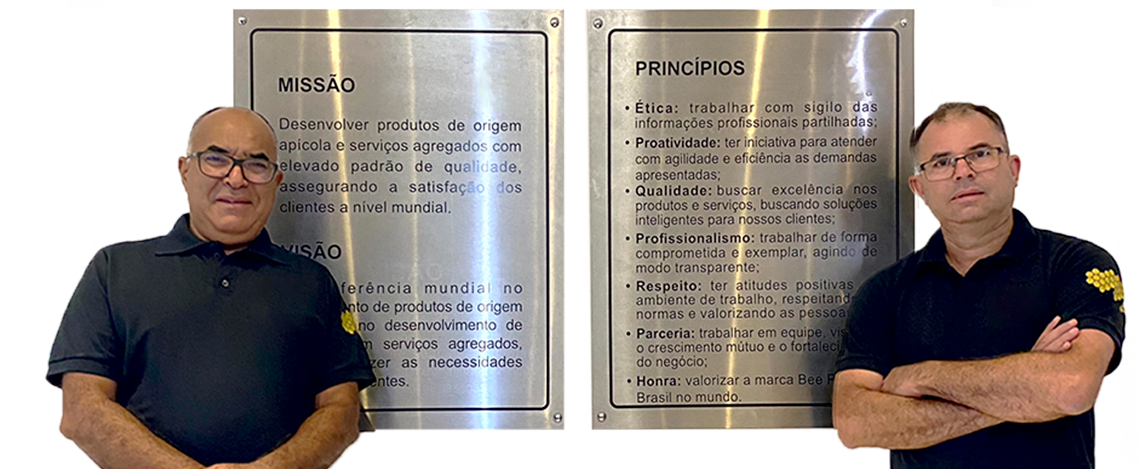
With customers throughout Brazil and in other countries in the Americas, Asia, and Europe, the company offers high-quality products and guaranteed delivery within deadlines and specifications due to its high production capacity, standing out for its expertise in the export process.


Promote health and quality of life through products of natural origin.
Provide well-being and quality of life to an increasing number of people.
• Ethics, sustainability and honesty
• Proactivity, innovation and customer focuse
• Cooperation, excellence in quality and partnership
• Professionalism, respect and behavior
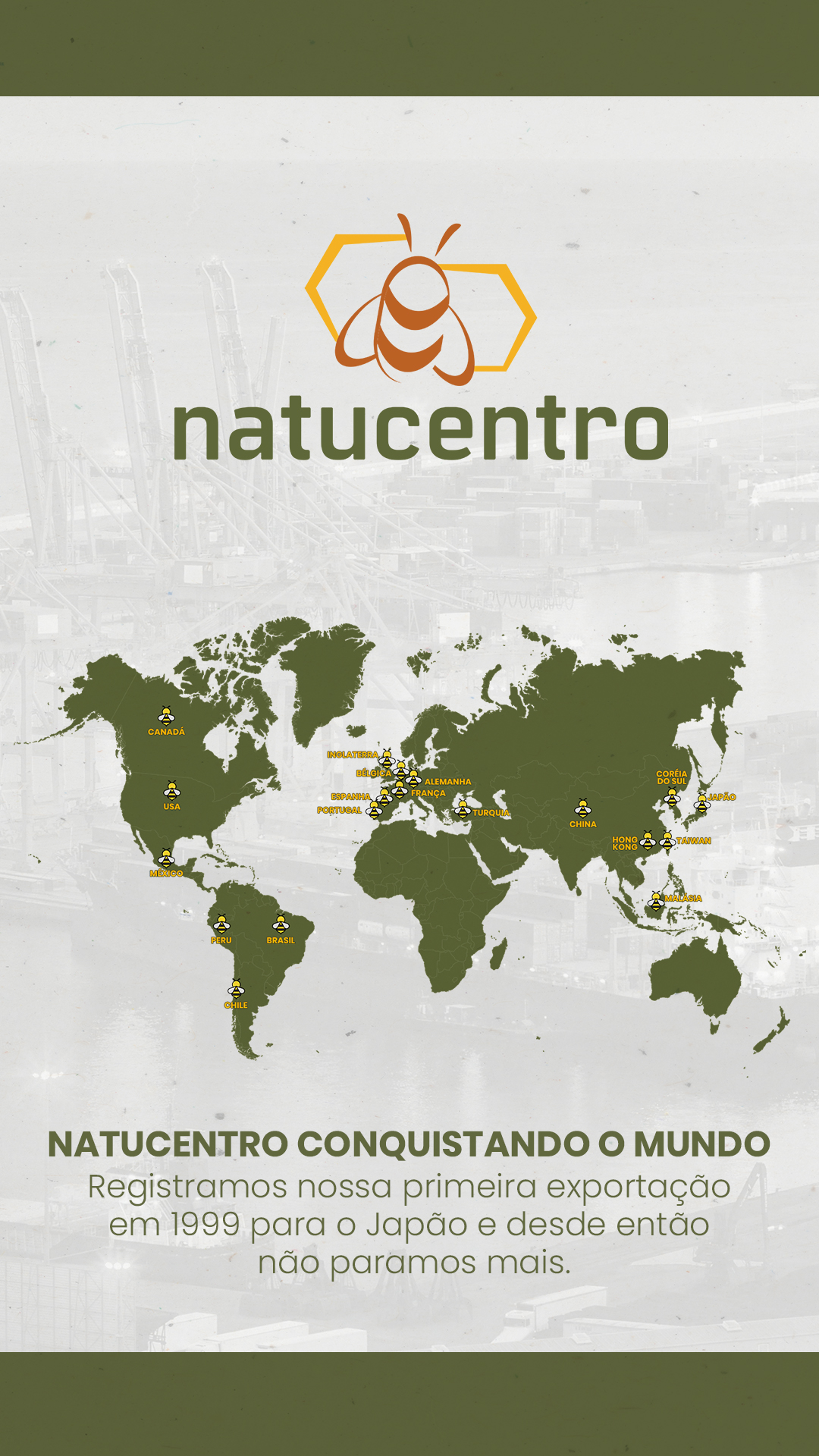

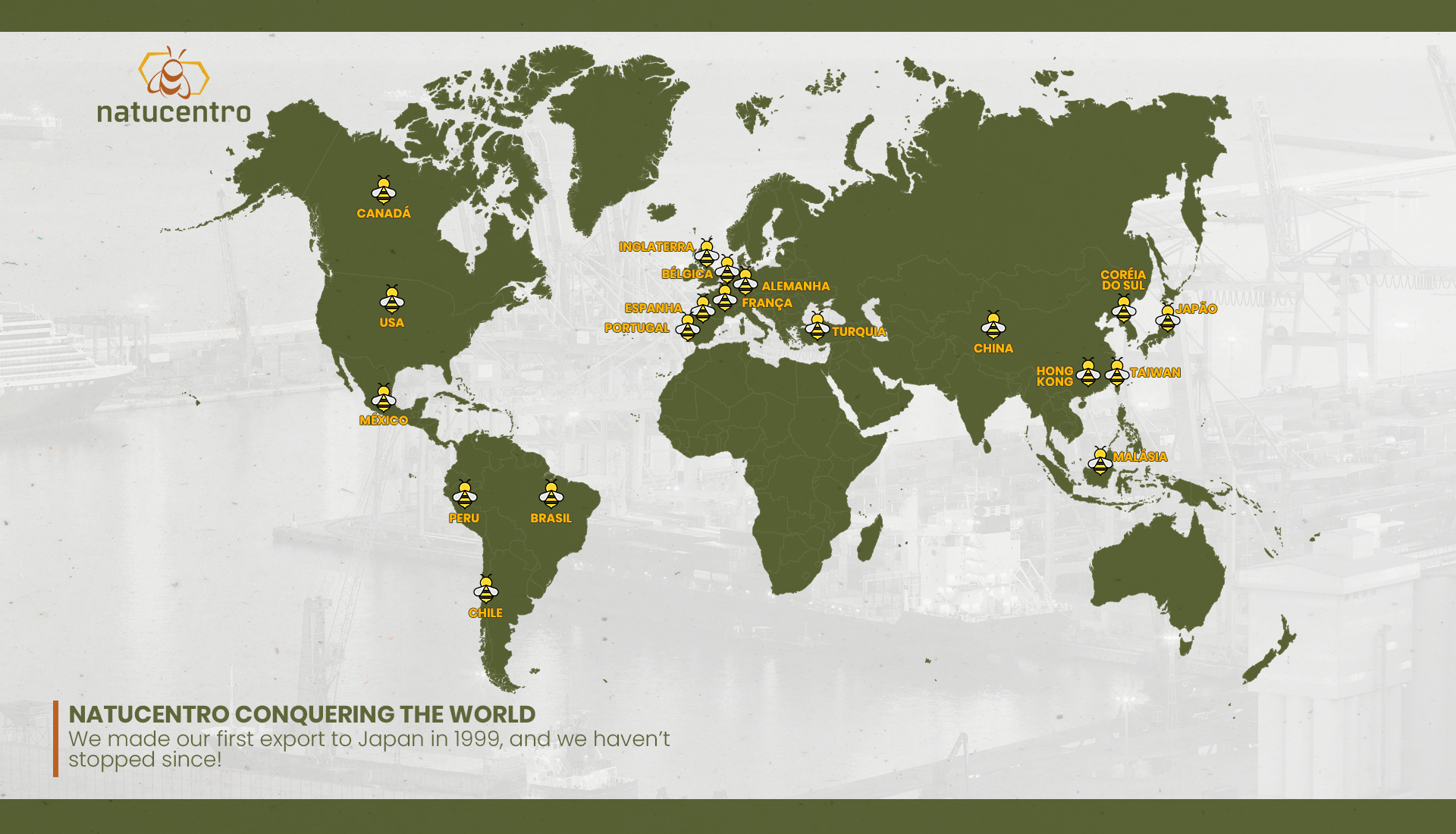
Natucentro offers products that promote healthy and sustainable eating habits, ensuring a balance between nutrition and environmental preservation. We invest in research, cutting-edge technology, and high quality standards to provide nutritious, preservative-free foods sourced from Brazilian flora.

Our products undergo rigorous traceability control, from production in the hives to delivery to the consumer, ensuring a truly natural origin and extreme quality.

We advocate for product labels with clearer and simpler nutritional information, with rules for food advertising, especially for children and the elderly.

Our products are manufactured by Bee Propolis Brasil, which guarantees quality, good manufacturing practices, standardization, food safety, and sustainability validated by numerous certifications with national and international validity.

All products undergo rigorous quality control in our laboratory, ensuring food safety and attesting to the quality of each batch. Natucentro is synonymous with quality, which is reflected in our products.

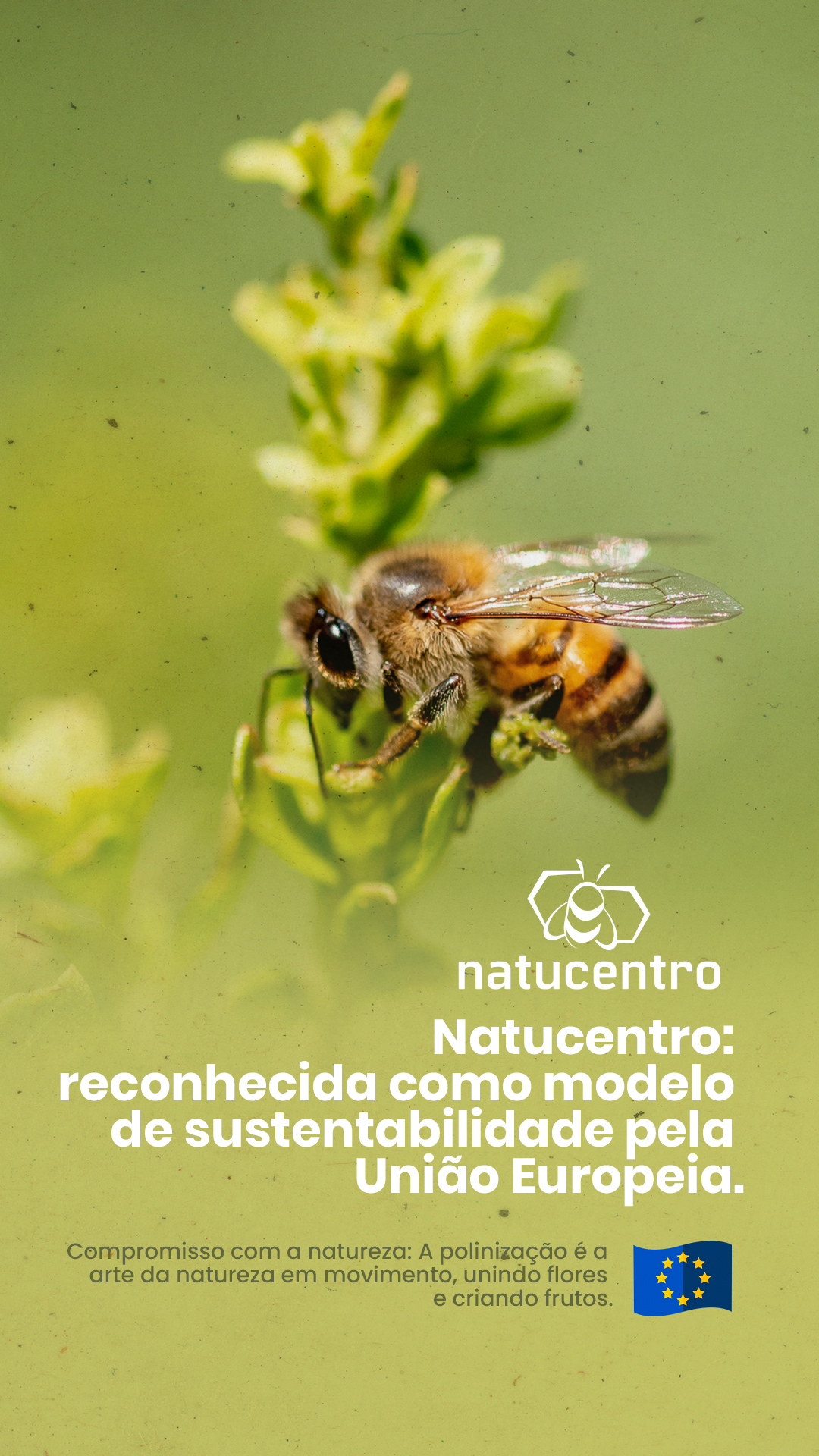
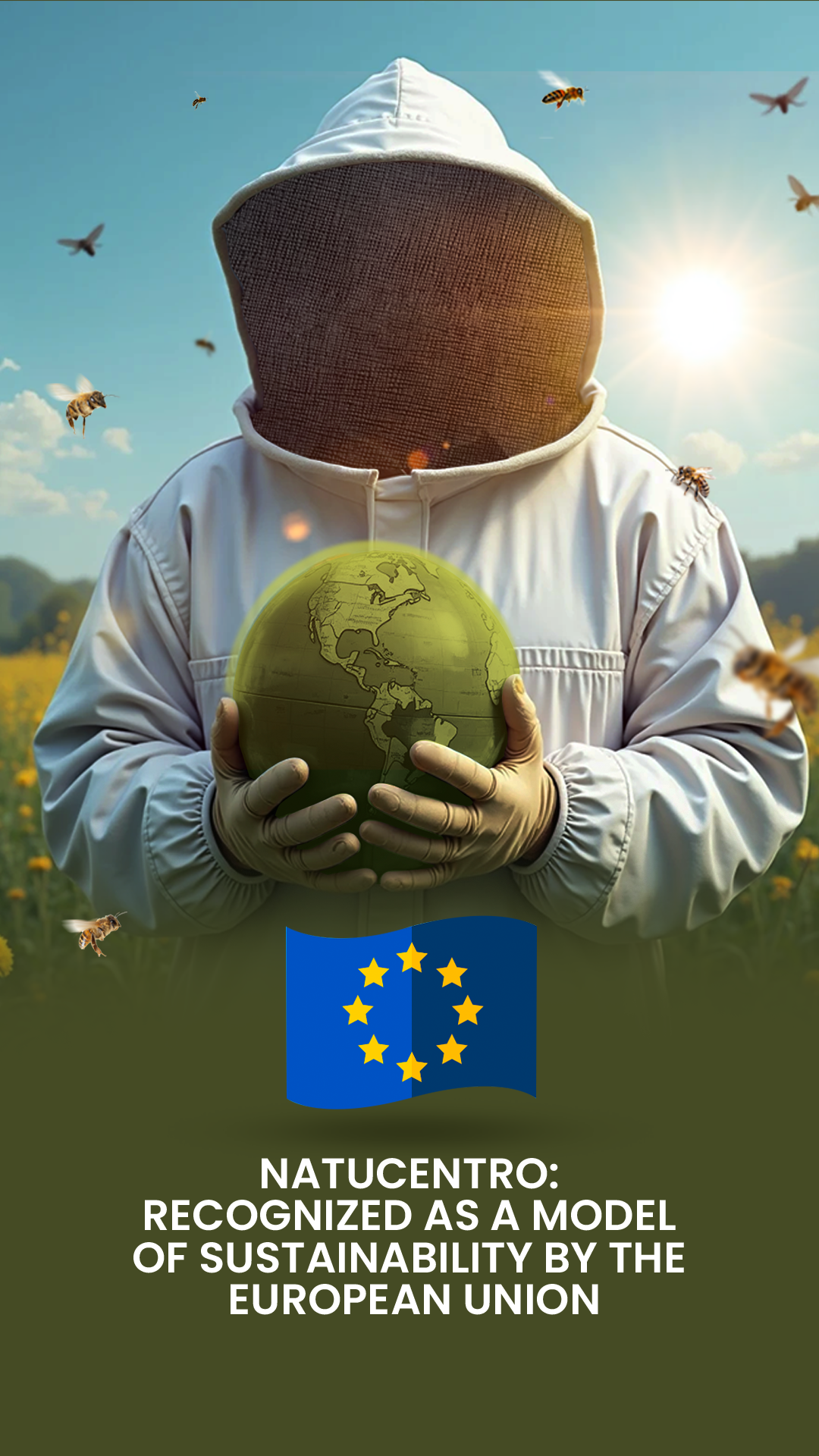
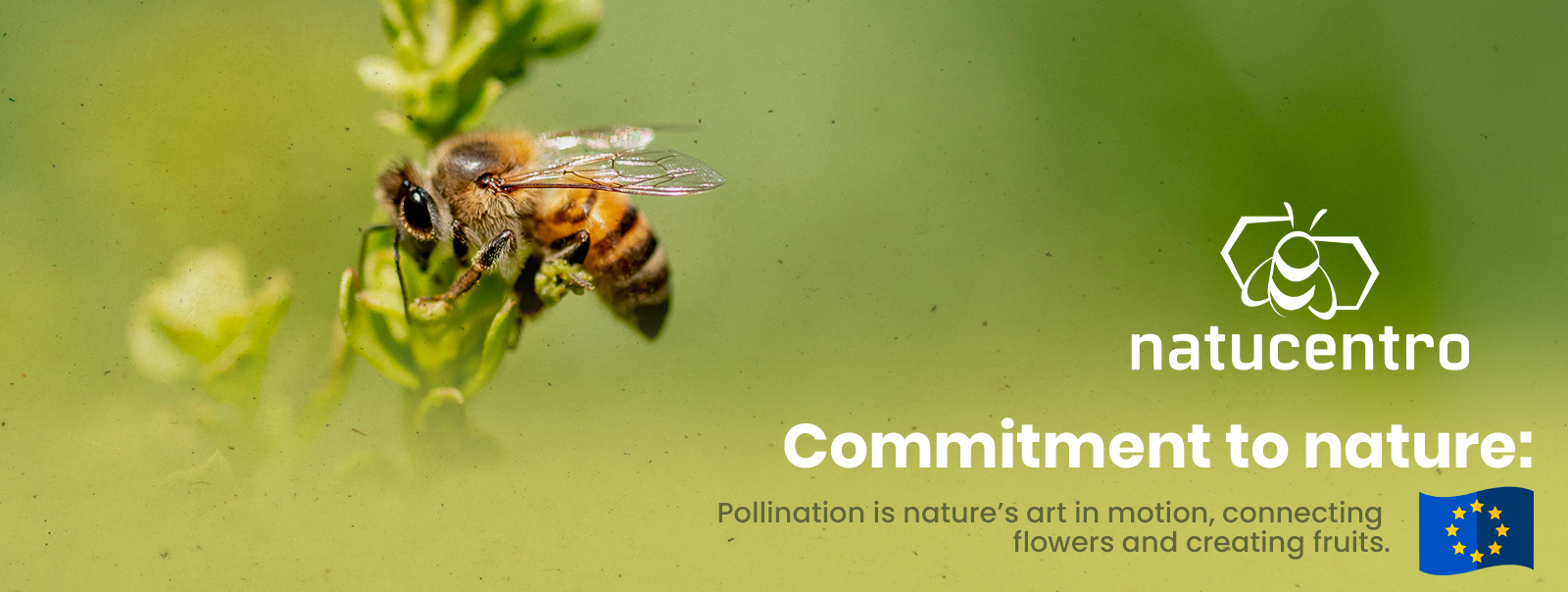
Bees are responsible for pollinating about 75% of the crops that provide food for us. With deforestation and the consequent decline in the number of trees and plants in our flora, these small pollinators are at risk of extinction. Aware of this, Natucentro could not help but act and try to reduce this impact on the surrounding nature. In 1996, the company began a reforestation project for the wild rosemary plant on its Bambuí farms, providing bees with flowers to feed on and, consequently, balancing the ecosystem.
This project resulted in Natucentro being recognized as a “MODEL COMPANY OF SUSTAINABILITY BY THE EUROPEAN UNION” in 2007, crowning its commitment to environmental preservation and socio-environmental responsibility and influencing other beekeepers in the region to do the same.
The Natucentro project was turned into a documentary, titled “City of Bees,” featuring images and testimonials captured at the company and its apiaries. A booklet on the subject was also produced and distributed to students at schools in Portugal where the film was shown.
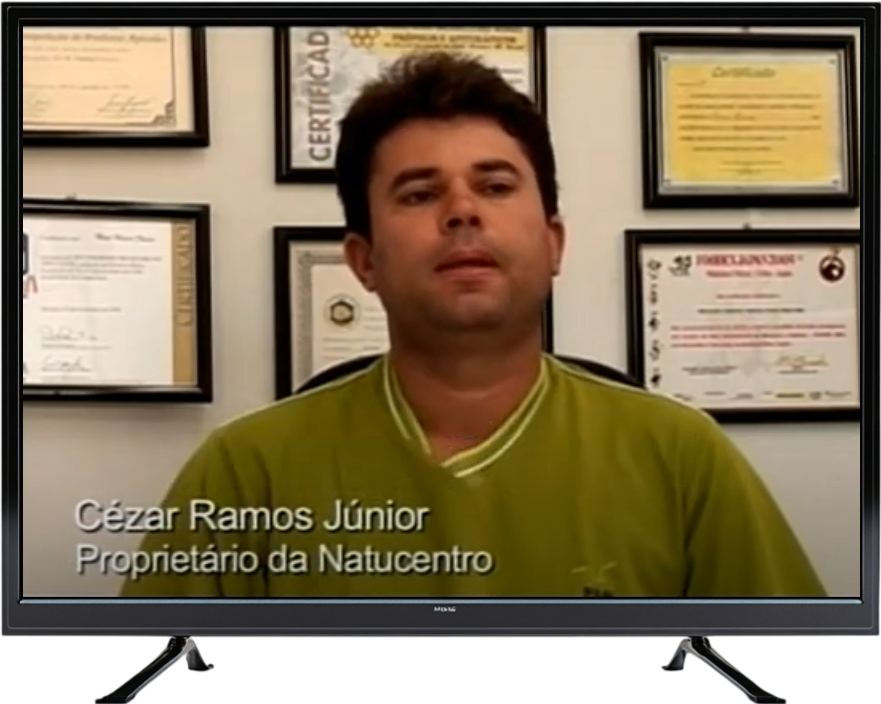
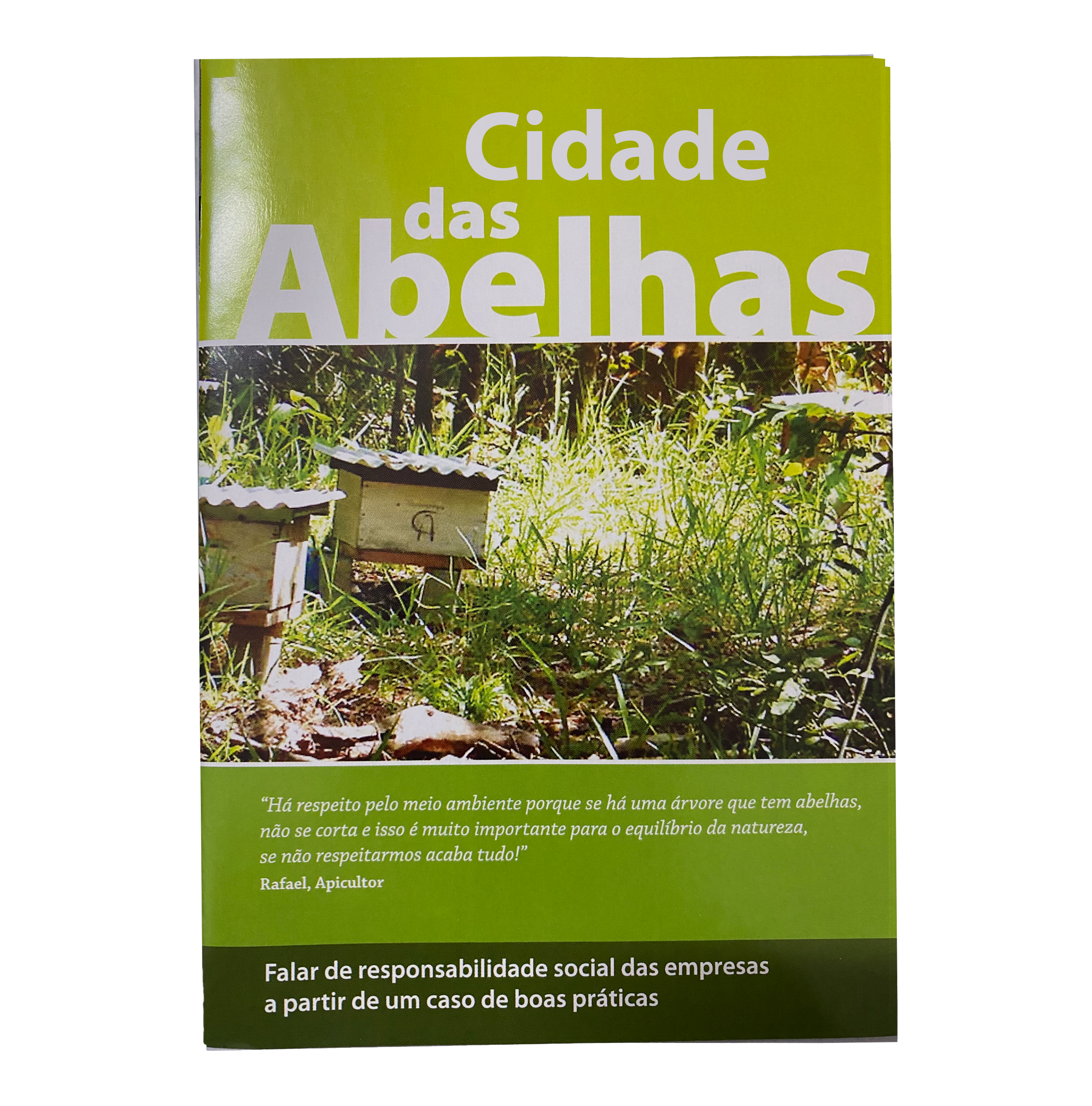
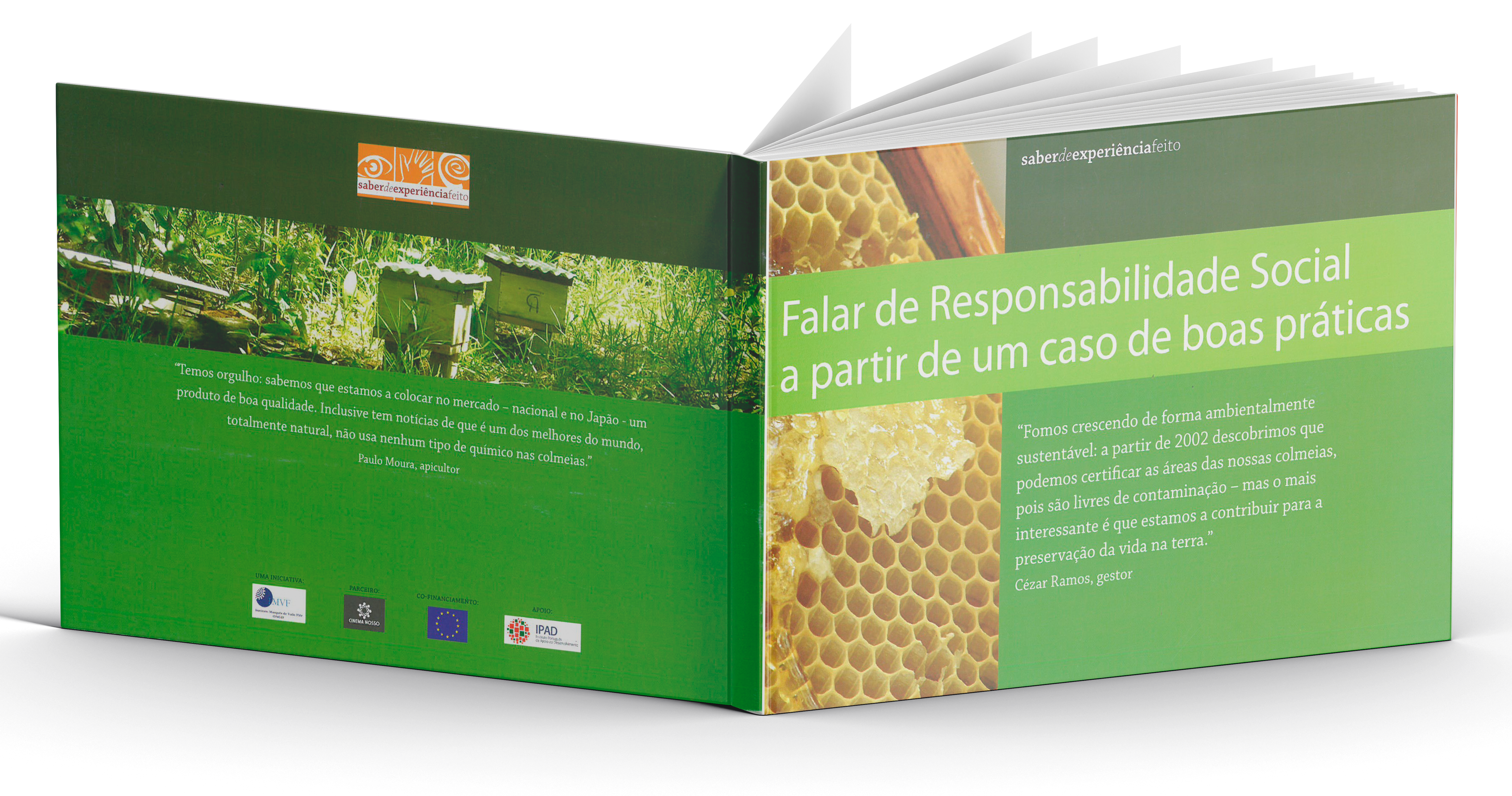
Population growth and uncontrolled technological advancement have led to a decline in green areas, resulting in the extinction of bees, which play a crucial role in agricultural pollination. It is estimated that 75% of the world’s crops depend on insect pollination, with 20,000 of the 100,000 pollinator species being bees.
Factors such as deforestation, low flora diversification, and pesticide use contribute to the reduction of bee pastures. Awareness and sustainable practices are essential to address this challenge, and everyone—governments, businesses, and citizens—has a role to play in environmental preservation.
Beekeeping, as a socially just, environmentally friendly and economically viable activity, offers us the opportunity to evolve responsibly in relation to the environment.

